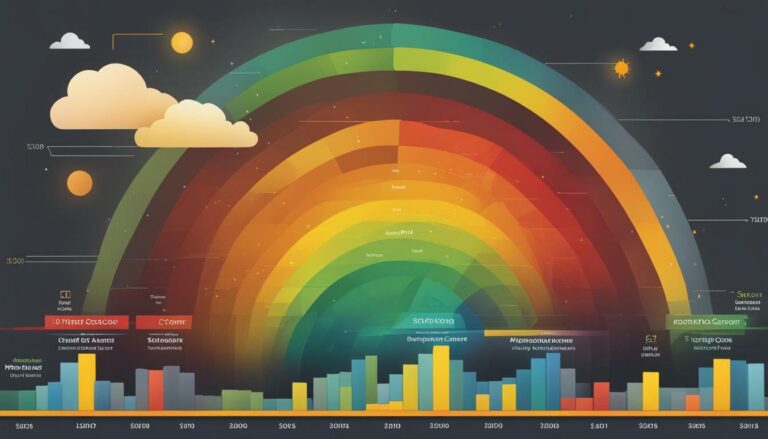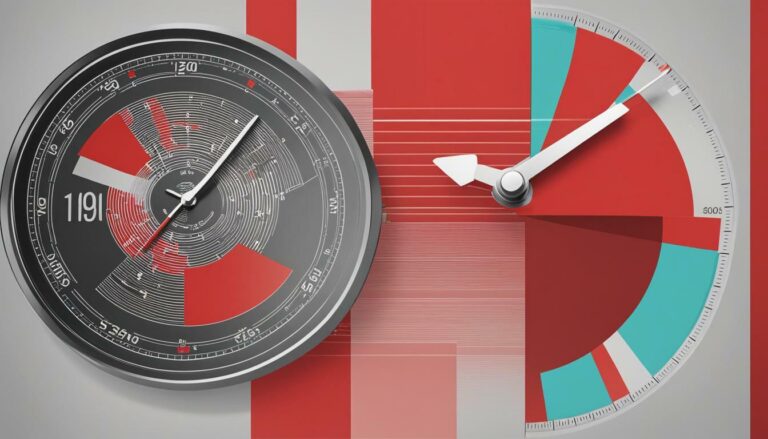Understanding How Loan Applications Affect Credit Scores
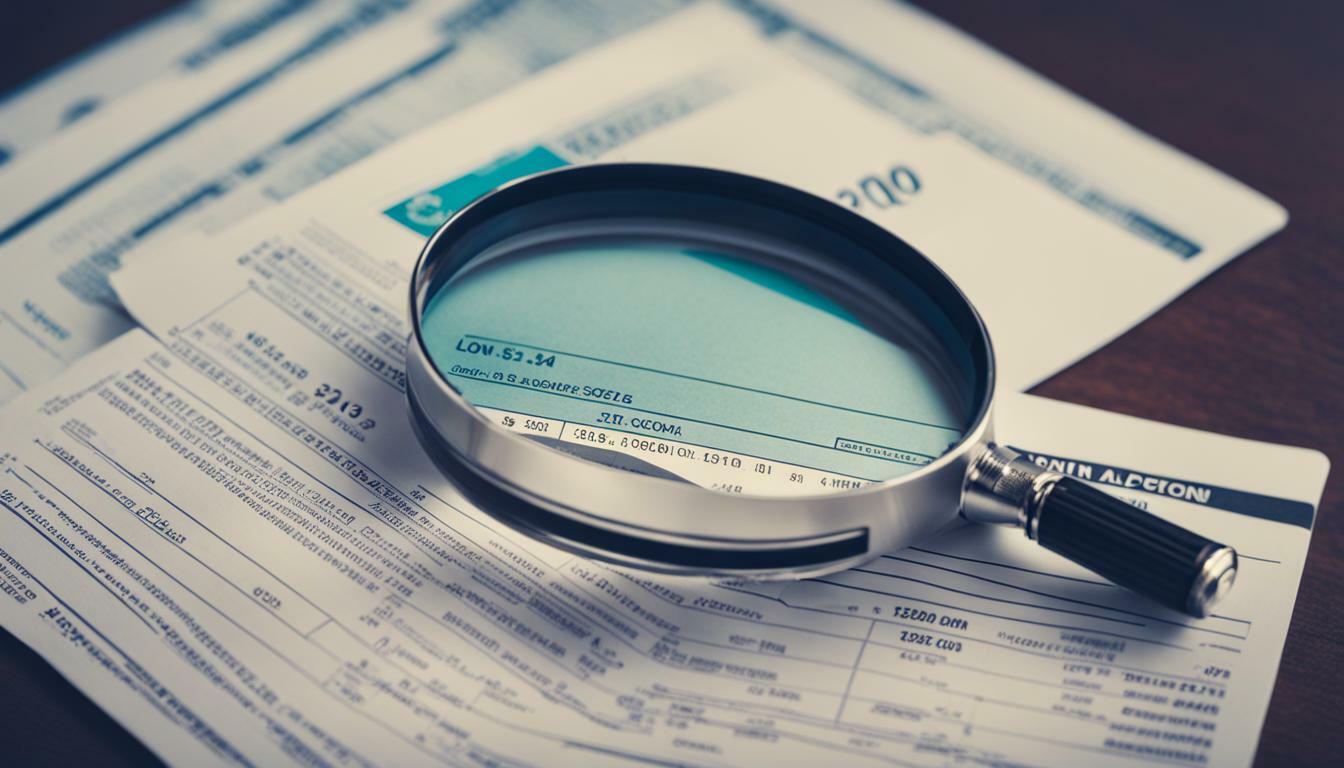
When you apply for a loan, it’s crucial to understand how it can affect your credit score and overall financial health. Lenders assess your credit score and history to determine your creditworthiness and financial situation. This assessment involves a hard credit check, which temporarily lowers your credit score by up to 10 points. However, making timely monthly payments on a loan can have a positive impact on your credit score over time.
Timely loan payments can improve your payment history, lower your credit utilization, and contribute to a healthier credit mix. These factors collectively account for 75% of your credit score. On the other hand, taking on more debt with a loan can harm your credit if you’re unable to make the payments on time or if you accumulate too much debt. It’s essential to carefully consider your financial situation before deciding to take out a loan to avoid potential negative consequences on your credit score.
- Loan applications can temporarily lower your credit score due to hard credit checks.
- Making timely monthly payments on a loan can positively impact your credit score over time.
- Improving your payment history, lowering credit utilization, and diversifying your credit mix can contribute to a stronger credit score.
- Taking on too much debt or missing loan payments can negatively affect your credit score.
- Applying for multiple loans within a short period can harm your credit score.
The Credit Score Impact of Loan Applications
Loan applications can have both immediate and long-lasting effects on your credit score. When you apply for a personal loan, lenders will typically perform a hard credit check to assess your creditworthiness. This type of credit inquiry can temporarily lower your credit score by up to 10 points. The impact of the credit check may be minimal if you have a strong credit history, but it can be more significant if you have a limited credit history or recent negative marks.
Making timely monthly payments on a personal loan can have a positive impact on your credit score over time. It demonstrates responsible financial behavior and improves your payment history, which accounts for 35% of your credit score. Paying your loan on time also helps to lower your credit utilization, which is the amount of available credit you’re using. A lower credit utilization can positively impact your credit score and accounts for another 30% of your overall score. Additionally, adding a personal loan to your credit mix can diversify your credit profile, contributing to the remaining 10% of your credit score.
On the other hand, taking on more debt with a personal loan can have a negative impact on your credit score if you’re not able to make the payments on time or if you accumulate too much debt. Missed or late payments can be reported to the credit bureaus and result in a decrease in your credit score. It’s important to carefully consider your financial situation before deciding to take out a personal loan and ensure that you can comfortably manage the monthly payments.
🚨 TUIC Errors + Low Credit Score?
CreditScoreIQ helps you build credit faster by reporting utility bills to all 3 bureaus—while you dispute errors.
Start Building Credit Today →| Actions | Credit Score Impact |
|---|---|
| Making timely monthly payments | Positive impact |
| Missed or late payments | Negative impact |
| Accumulating too much debt | Negative impact |

Applying for multiple loans within a short period of time can also negatively affect your credit score. Each loan application triggers a hard credit inquiry, which can lower your credit score. Lenders may interpret multiple applications as a sign of financial instability or desperation for credit. It’s important to carefully consider your borrowing needs and only apply for loans when necessary.
In summary, loan applications have both immediate and long-lasting effects on your credit score. While a single application may temporarily lower your score, responsible borrowing and timely repayments can have a positive impact over time. However, it’s crucial to consider your financial situation and borrowing needs before taking on a loan to ensure that you can manage the payments responsibly and protect your credit score.
Positive Effects of Timely Loan Payments on Credit Scores
Timely loan payments can play a significant role in improving your credit score. When you make your monthly payments on time, it demonstrates to lenders that you are a responsible borrower, which can have a positive impact on your creditworthiness. This is especially important for individuals who are trying to rebuild their credit or establish a solid credit history.
Making timely loan payments can improve your payment history, which is a crucial factor in calculating your credit score. Payment history accounts for about 35% of your total credit score, making it one of the most influential factors. By consistently making on-time payments, you show lenders that you can be trusted to repay your debts, which can result in a higher credit score over time.

In addition to improving your payment history, timely loan payments can also lower your credit utilization ratio. Your credit utilization ratio is the amount of credit you are using compared to your available credit limit. A lower credit utilization ratio generally indicates that you are not relying too heavily on credit, which is seen as a positive by lenders and can have a positive impact on your credit score.
| Payment History | Credit Utilization | Credit Mix |
|---|---|---|
| 35% | 30% | 10% |
Finally, making timely loan payments can add to your credit mix, which is another factor that affects your credit score. Credit mix refers to the variety of credit types you have, such as credit cards, mortgages, and personal loans. Having diverse types of credit can demonstrate your ability to manage different financial responsibilities and can contribute positively to your credit score.
Overall, making timely loan payments is a crucial component of maintaining a healthy credit score. By doing so, you can improve your payment history, lower your credit utilization ratio, and add to your credit mix, all of which can have a positive impact on your creditworthiness. It is important to carefully consider your financial situation before taking on a loan to ensure that you will be able to make your payments on time and reap the benefits of a strong credit position.
The Negative Impact of Debt Accumulation and Missed Payments
It’s important to manage your loan responsibly to avoid negatively impacting your credit score. One of the key factors that can harm your credit score is accumulating too much debt without the ability to make timely payments. When you take on more debt than you can manage, it can negatively affect your creditworthiness and financial stability. Lenders view excessive debt as a risk, making it harder for you to obtain credit in the future.
Missed payments on your loan can also have a significant negative impact on your credit score. Payment history accounts for 35% of your credit score, so any instances of late or missed payments can be detrimental. When you fail to make payments on time, it signals to lenders that you may be struggling financially or are not responsible with your debts. As a result, your credit score may decrease, making it more challenging to qualify for favorable loan terms or credit opportunities in the future.
To illustrate the consequences of debt accumulation and missed payments, refer to the table below:
| Loan Amount | Monthly Payment | Missed Payments | Credit Score Impact |
|---|---|---|---|
| $10,000 | $300 | 0 | No impact |
| $10,000 | $300 | 1 | Decrease of 50 points |
| $10,000 | $300 | 3 | Decrease of 100 points |
| $10,000 | $300 | 5+ | Significant decrease in credit score |
As you can see from the table, even a single missed payment can have a significant impact on your credit score. The more missed payments you accumulate, the worse the consequences for your creditworthiness. It’s crucial to make your loan payments on time to maintain a strong credit position and avoid the negative repercussions of debt accumulation and missed payments.
Multiple Loan Applications and Credit Scores
Applying for multiple loans within a short timeframe can have a negative impact on your credit score. When you submit a loan application, lenders will perform a hard credit check to assess your creditworthiness. Each hard credit check can temporarily lower your credit score by up to 10 points. This is because multiple loan applications within a short period of time can indicate financial instability or a higher risk of defaulting on payments.
It’s important to understand that the relationship between loan applications and credit scores is based on the principle of responsible borrowing. While one or two loan applications may not significantly impact your credit score, a pattern of multiple applications can raise red flags for lenders. They may perceive you as desperate for credit or financially overextended, both of which can negatively affect your creditworthiness.
To illustrate the impact of multiple loan applications on credit scores, consider the following hypothetical scenario:
| Scenario | Credit Score Impact |
|---|---|
| Applying for one loan | Minimal impact, temporary decrease in credit score due to hard credit check |
| Applying for two loans | Slightly higher impact, credit score decreases further |
| Applying for three or more loans | Significant impact, credit score decreases substantially |
To avoid damaging your credit score, it’s crucial to carefully consider your financial situation and borrowing needs before submitting multiple loan applications. Instead of applying for multiple loans, you may want to explore alternative options or work on improving your creditworthiness before seeking additional credit. If you do need to apply for multiple loans, spacing out your applications over a longer period of time can help minimize the negative impact on your credit score.

Remember, your credit score is a reflection of your financial responsibility and trustworthiness as a borrower. By being mindful of the impact that multiple loan applications can have on your credit score, you can make informed decisions and maintain a strong credit position.
Considering Your Financial Situation Before Taking a Loan
Before applying for a loan, it’s crucial to consider your financial circumstances and the potential impact on your credit score. When you apply for a personal loan, lenders will assess your credit score and history to determine your creditworthiness and financial health. This assessment involves a hard credit check, which temporarily lowers your credit score by up to 10 points. However, making timely monthly payments on a personal loan can have a positive impact on your credit score over time.
Making your loan payments on time demonstrates responsible financial behavior and improves your payment history, which accounts for 35% of your credit score. Additionally, it can lower your credit utilization, which is the amount of credit you’re using compared to the total amount available to you. Credit utilization accounts for 30% of your credit score, so keeping your debt levels manageable is essential for maintaining a good credit score.
Another factor to consider is your credit mix. Having a diverse range of credit accounts, such as a combination of credit cards, loans, and mortgages, can positively impact your credit score. Adding a personal loan to your credit mix can help diversify your credit profile and contribute to a healthier credit score. However, it’s important to be cautious and only take on additional debt if you can comfortably make the monthly payments without straining your financial resources.
Table: Impact of Personal Loan Payments on Credit Score
| Factors | Impact on Credit Score |
|---|---|
| Payment History | Positive impact by demonstrating responsible financial behavior |
| Credit Utilization | Positive impact by lowering your credit utilization ratio |
| Credit Mix | Positive impact by diversifying your credit profile |
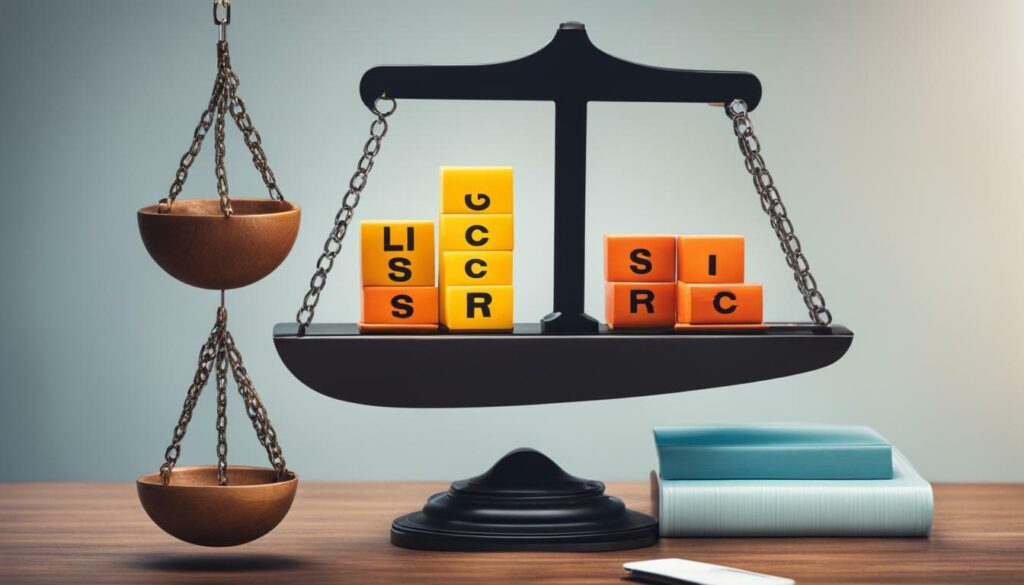
On the flip side, taking on more debt with a personal loan can hurt your credit if you’re not able to make the payments on time or if you accumulate too much debt. Late or missed payments can significantly lower your credit score and make it more difficult to secure future loans or credit. It’s important to carefully evaluate your financial situation, including your income, expenses, and any existing debt, before deciding to take out a personal loan.
Additionally, applying for multiple loans within a short period of time can negatively affect your credit score. Each loan application results in a hard credit check, which can lower your credit score temporarily. If you’re actively seeking multiple loans, it can raise concerns for lenders about your financial stability and ability to manage debt responsibly.
In conclusion, before applying for a personal loan, take the time to assess your financial circumstances and understand the potential impact on your credit score. Making timely payments and managing your debt responsibly can help improve your credit score over time. However, it’s crucial to carefully consider your financial situation and only take on additional debt if it aligns with your overall financial goals and you can comfortably manage the loan payments.
Maintaining a Strong Credit Position
While loan applications can have an impact on your credit score, there are steps you can take to maintain a strong credit position. It’s important to understand how applying for loans can affect your credit score and to be proactive in managing your finances.
One crucial factor to consider is making timely monthly payments on your loans. This demonstrates responsible financial behavior and can positively impact your credit score over time. By consistently paying your loan installments on time, you establish a strong payment history, which accounts for 35% of your credit score.
Another aspect to pay attention to is your credit utilization ratio. This refers to the percentage of your available credit that you are currently using. By keeping your credit utilization low, you can improve your credit score. Taking on additional debt with a loan can increase your credit utilization ratio, so it’s essential to carefully consider your financial situation before taking on more debt.
| Benefit of Timely Loan Payments | Negative Impact of Debt Accumulation | Multiple Loan Applications |
|---|---|---|
|
|
|
Ultimately, maintaining a strong credit position requires careful consideration of your financial situation and responsible management of your loans. By making timely payments and avoiding excessive debt, you can mitigate the potential negative impact of loan applications on your credit score and maintain a healthy credit position.
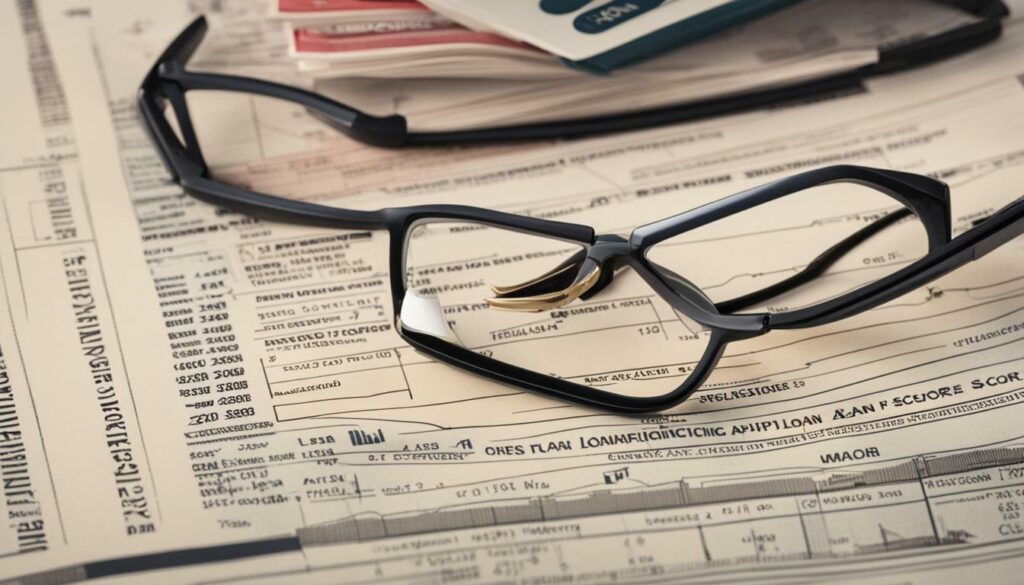
Note: The image above provides a visual representation of the relationship between loan applications and credit scores.
Long-Term Credit Score Impact of Loan Applications
Managing your loan responsibly can have a positive long-term effect on your credit score. When you apply for a personal loan, lenders will assess your credit score and history to determine your creditworthiness and financial health. This assessment involves a hard credit check, which temporarily lowers your credit score by up to 10 points. However, making timely monthly payments on a personal loan can have a positive impact on your credit score over time.
When you consistently make on-time payments, it shows lenders that you are a responsible borrower. This improves your payment history, which accounts for 35% of your credit score. By demonstrating your ability to manage your loan effectively, you strengthen your creditworthiness and increase your chances of obtaining favorable loan terms in the future.
Furthermore, making regular payments on your loan can help lower your credit utilization ratio. Credit utilization refers to the amount of credit you are using compared to your total available credit. Maintaining a low credit utilization ratio is essential for a strong credit score. By paying down your loan balance, you effectively lower your credit utilization, which accounts for 30% of your credit score.
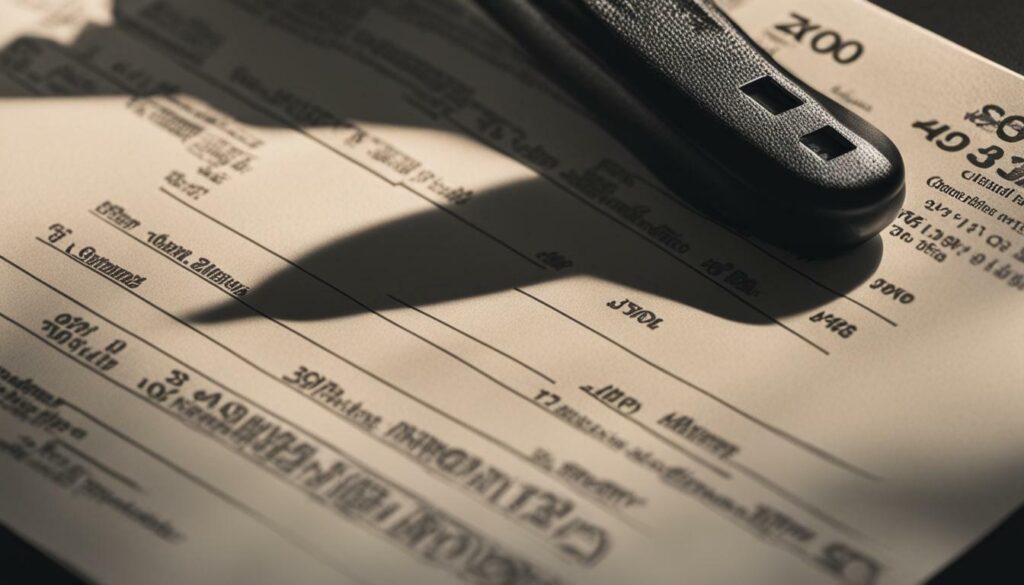
In addition to payment history and credit utilization, diversifying your credit mix is another important factor in maintaining a strong credit score. When you take on a personal loan, it adds to your credit mix, which considers the variety of credit accounts you have. A diverse mix of credit, including loans and credit cards, demonstrates your ability to manage different types of credit responsibly, which can positively impact your credit score. Credit mix accounts for 10% of your credit score.
However, it’s crucial to be cautious when taking on additional debt. If you’re unable to make the loan payments on time or if you accumulate too much debt, it can have a negative impact on your credit score. Responsible loan management involves budgeting effectively, making timely payments, and ensuring that you can comfortably handle the financial obligations of the loan.
In conclusion, managing your personal loan responsibly can have a positive long-term impact on your credit score. By making timely payments, lowering your credit utilization, and adding to your credit mix, you can strengthen your creditworthiness and improve your chances of obtaining favorable loan terms in the future.
Conclusion
Understanding how loan applications affect your credit score is crucial for maintaining a healthy financial life. When you apply for a personal loan, lenders will assess your credit score and history to determine your creditworthiness and financial health. This assessment involves a hard credit check, which temporarily lowers your credit score by up to 10 points.
However, making timely monthly payments on a personal loan can have a positive impact on your credit score over time. It can improve your payment history, lower your credit utilization, and add to your credit mix, all of which account for 75% of your credit score.
On the other hand, taking on more debt with a personal loan can hurt your credit if you’re not able to make the payments on time or if you accumulate too much debt. Additionally, applying for multiple loans within a short period of time can negatively affect your credit score. It’s important to carefully consider your financial situation before deciding to take out a personal loan.
FAQ
How do loan applications affect credit scores?
When you apply for a loan, lenders will perform a hard credit check, which temporarily lowers your credit score by up to 10 points.
Can making timely monthly payments on a personal loan improve my credit score?
Yes, making timely monthly payments on a personal loan can have a positive impact on your credit score over time. It can improve your payment history, lower your credit utilization, and add to your credit mix, all of which account for 75% of your credit score.
What happens if I’m not able to make the payments on time or if I accumulate too much debt?
If you’re unable to make the payments on time or accumulate too much debt, it can hurt your credit score. Taking on more debt with a personal loan can have a negative impact on your credit health.
Will applying for multiple loans within a short period negatively affect my credit score?
Yes, applying for multiple loans within a short period of time can negatively affect your credit score. It’s important to be cautious and consider the potential impact on your credit health before applying for multiple loans.
What should I consider before deciding to take out a personal loan?
Before taking out a personal loan, it’s important to carefully consider your financial situation. Evaluate your ability to make timely payments and the potential risks and benefits involved. Taking out a loan without proper consideration can have a negative impact on your credit score.
Ready to Improve Your Credit?
Disputing TUIC errors is step one. Step two? Boost your score by reporting utility payments with CreditScoreIQ.
Get Started Now (Only $1 Trial) →3-bureau reporting • $1M identity insurance • Dark web monitoring





